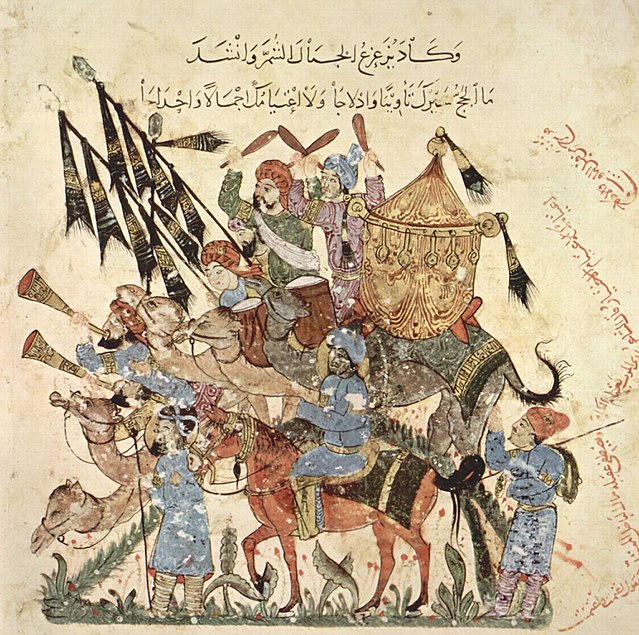Riḥla refers to both a journey and the written account of that journey, or travelogue. It constitutes a genre of Arabic literature. Associated with the medieval Islamic notion of "travel in search of knowledge", the riḥla as a genre of medieval and early-modern Arabic literature usually describes a journey taken with the intent of performing the Hajj, but can include an itinerary that vastly exceeds that original route. The classical riḥla in medieval Arabic travel literature, like those written by Ibn Battuta and Ibn Jubayr, includes a description of the "personalities, places, governments, customs, and curiosities" experienced by traveler, and usually within the boundaries of the Muslim world. However, the term rihla can be applied to other Arabic travel narratives describing journeys taken for reasons other than pilgrimage; for instance the 19th century riḥlas of Muhammad as-Saffar and Rifa'a al-Tahtawi both follow conventions of the riḥla genre by recording not only the journey to France from Morocco and Egypt, respectively, but also their experiences and observations.

Historic copy of selected parts of The Rihla by Ibn Battuta, 1836 CE, Cairo
Abū Abd Allāh Muḥammad ibn Abd Allāh Al-Lawātī, commonly known as Ibn Battuta, was a Maghrebi traveller, explorer and scholar. Over a period of thirty years from 1325 to 1354, Ibn Battuta visited most of North Africa, the Middle East, East Africa, Central Asia, South Asia, Southeast Asia, China, the Iberian Peninsula, and West Africa. Near the end of his life, he dictated an account of his journeys, titled A Gift to Those Who Contemplate the Wonders of Cities and the Marvels of Travelling, but commonly known as The Rihla.
1878 illustration by Léon Benett showing Ibn Battuta (center) and his guide (left) in Egypt
A miniature from al-Wasiti's Maqamat of Al-Hariri of pilgrims on a hajj
Ottoman 17th century tile depicting the Kaaba, in Mecca
Old City of Sana'a, Yemen





